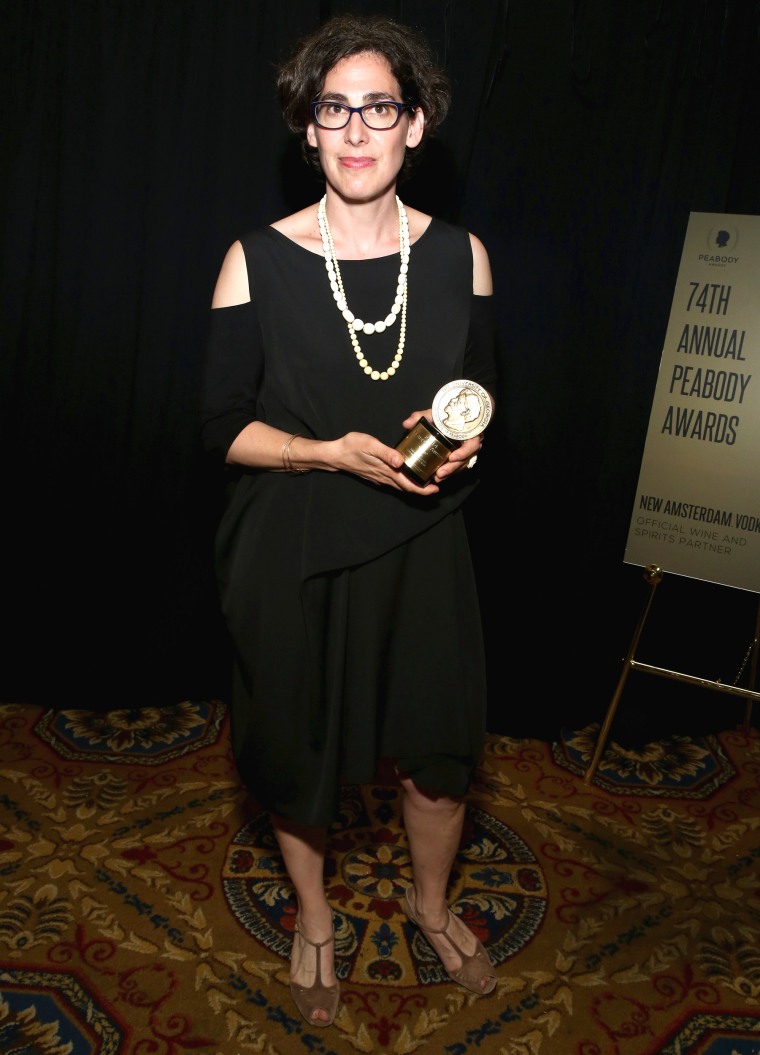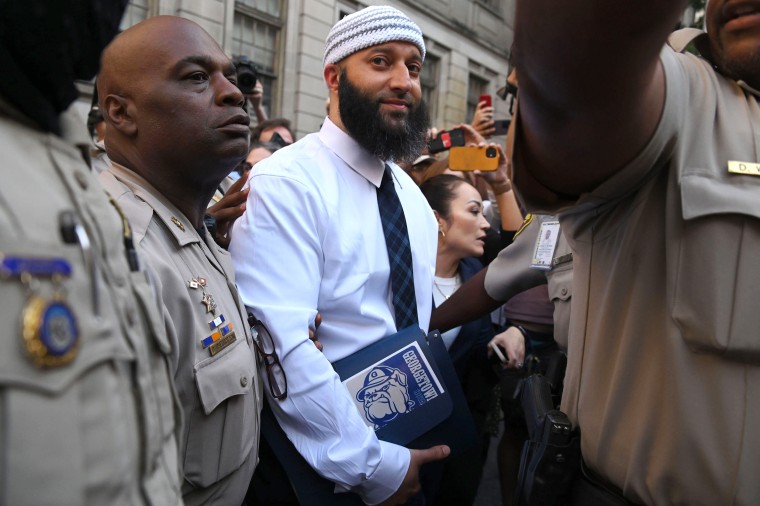When the 12-episode first season of “Serial” debuted in the fall of 2014, podcasts were a relatively new creative medium — and the true-crime audio narrative was not yet the stuff of parody.
“Serial” changed the game, racking up hundreds of millions of downloads worldwide, revitalizing the true-crime genre and revolutionizing a nascent digital format that was both commercially unproven and journalistically untested.
Yet the show’s most lasting legacy was on full display Monday, when a Baltimore judge tossed a murder conviction against the first season’s subject, Adnan Syed, and ordered him released from prison after more than two decades behind bars.
“Serial” put international attention on Adnan's case. The co-creator and host, public radio veteran Sarah Koenig, scrutinized old evidence, discovered new facts and raised urgent questions about the justice system writ large.
The series helped kick off the great podcast boom of the 2010s and early 2020s, inspiring a glut of spiritual successors and imitators. Eight years after the show’s debut, the podcast circuit across all storytelling genres has never been more crowded or competitive.
But in today’s oversaturated market, could any one show prove to be as singularly culture-shaping — influential enough to help free an imprisoned person?
“What’s happened in podcasting is like going from the 1950s, when there were only three or four television networks on air, to a vast and unlimited ocean of content,” said Paul Dergarabedian, a senior media analyst at the data firm Comscore.
“I remember a time when I could keep up on new podcast series, but nowadays that seems virtually impossible,” he added.

“Serial” is not the only podcast to have helped put more focus on a possible miscarriage of justice.
“In the Dark,” a production of American Public Media, helped draw attention to the case of Curtis Flowers, a man imprisoned for more than 20 years whose murder conviction was reversed by the U.S. Supreme Court in 2019.
In general, though, the abundance of podcasts and true-crime audio narratives makes it difficult for any one franchise to break out from the pack.
“‘Serial’ was a unique event in the history of podcasting and a signal moment for the expansion of the form into a popular medium,” said Charles Kravetz, the former general manager of the Boston public radio station WBUR. “It increased the audience and increased the competition."
“I don’t know how much harder it is to break through that loud cacophony, but it’s a credit to Koenig that ‘Serial’ changed the face of an important medium,” Kravetz said, adding that some producers of true-crime shows in the post-“Serial” era are “essentially operating in obscurity.”
The numbers tell a tale of exponential growth: 38% people in the U.S. over the age of 12, or roughly 109 million people, say they listen to at least one podcast a month, according to this year's edition of the Infinite Dial, an annual survey put together by Edison Research and sponsored by Wondery and ART19.
“Serial” was back on top of the podcast charts Tuesday with a new one-off episode called “Adnan Is Out.” (Koenig was photographed clutching a microphone outside the Baltimore courthouse Monday.)
“Yesterday, there was a lot of talk about fairness, but most of what the state put in that motion to vacate, all the actual evidence, was either known or knowable to cops and prosecutors back in 1999,” Koenig said in the new episode.
“Even on a day when the government publicly recognizes its own mistakes, it’s hard to feel cheered about a triumph of fairness, because we’ve built a system that takes more than 20 years to self-correct — and that’s just this one case,” she added.
The state of affairs in the podcasting world parallels trends in television. In the early 2000s, HBO series like “The Sopranos” and “The Wire” were among a select group of shows with novelistic ambitions. These days, so-called “prestige” TV programs are a dime a dozen, making it harder for new entrants on streaming services or premium cable to stand out.
“Serial” emerged when the conventions of podcasting were not yet fully developed and the medium was still seen as a niche pastime. (“To call something the most popular podcast might seem a little like identifying the tallest leprechaun,” The New York Times once wrote of “Serial.”)
In the early 2010s, there was some novelty in listening to a “binge-able” true-crime series. Koenig also hooked the audience with her intimate, wall-breaking transparency, chronicling her reporting in painstaking detail and confiding about her doubts as the question marks piled up.
In the years since, the stylistic tropes of true-crime podcasting have become all too easy to satirize. “Vengeance,” B.J. Novak’s directorial debut, spoofed some of the shopworn cliches of the genre: confessional voice-over narration, precious literary conceits. (The film was distributed by Focus Features, a unit of NBC News' parent company, NBCUniversal.)
Hulu’s “Only Murders in the Building” gently ribs podcast creators, too. Steve Martin and Martin Short’s amateur sleuths try to solve mysteries as they contend with their budding celebrity, fending off the entreaties of cultish fans.
In some respects, the profusion of podcasts post-“Serial” made it tougher for Koenig and her team to catch fire on such a wide scale again. The second season of the show, a deep dive into the controversial case of U.S. Army soldier Bowe Bergdahl, was not nearly as popular.
In its heyday, though, “Serial” was ubiquitous, the subject of dinner table debates, water-cooler conversations and a "Saturday Night Live" sketch. It seemed as though all of the United States was consumed with the matter of Syed's guilt or innocence.
Syed was serving a life sentence after he was convicted of strangling high school student Hae Min Lee, whose body was found buried in a Baltimore park. Koenig and others later raised questions about the evidence used by prosecutors, paving a path to this week's events.
But not everyone was equally swept up in the fight for Syed's release. Hae Min Lee's brother Young Lee addressed the court on Monday, according to the Associated Press, saying he felt betrayed by prosecutors and believed the case was essentially closed.
"This is not a podcast for me," he said. "This is real life."

